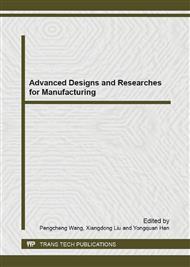p.1683
p.1687
p.1692
p.1696
p.1700
p.1705
p.1710
p.1717
p.1722
An Exception Handling Approach for Service-Based Business Processes
Abstract:
This paper proposes an exception handling mechanism for running reliable service-based business processes. With Smart Process-based Application Model that we have proposed, a smart process is generated automatically according to the execution of composite web services to better meet user’s individual requirements. However, the loosely-coupled nature of the smart process introduces more exceptions during its running. This paper will mainly focus on the failures of a smart process, and give an approach to handle exceptions. Based on Execution Transition Diagram(ETD) and several execution states we define in this paper, exceptions can be handled automatically by selecting rational transitions in the ETD during the execution of a smart process.
Info:
Periodical:
Pages:
1700-1704
Citation:
Online since:
December 2012
Authors:
Price:
Сopyright:
© 2013 Trans Tech Publications Ltd. All Rights Reserved
Share:
Citation:


